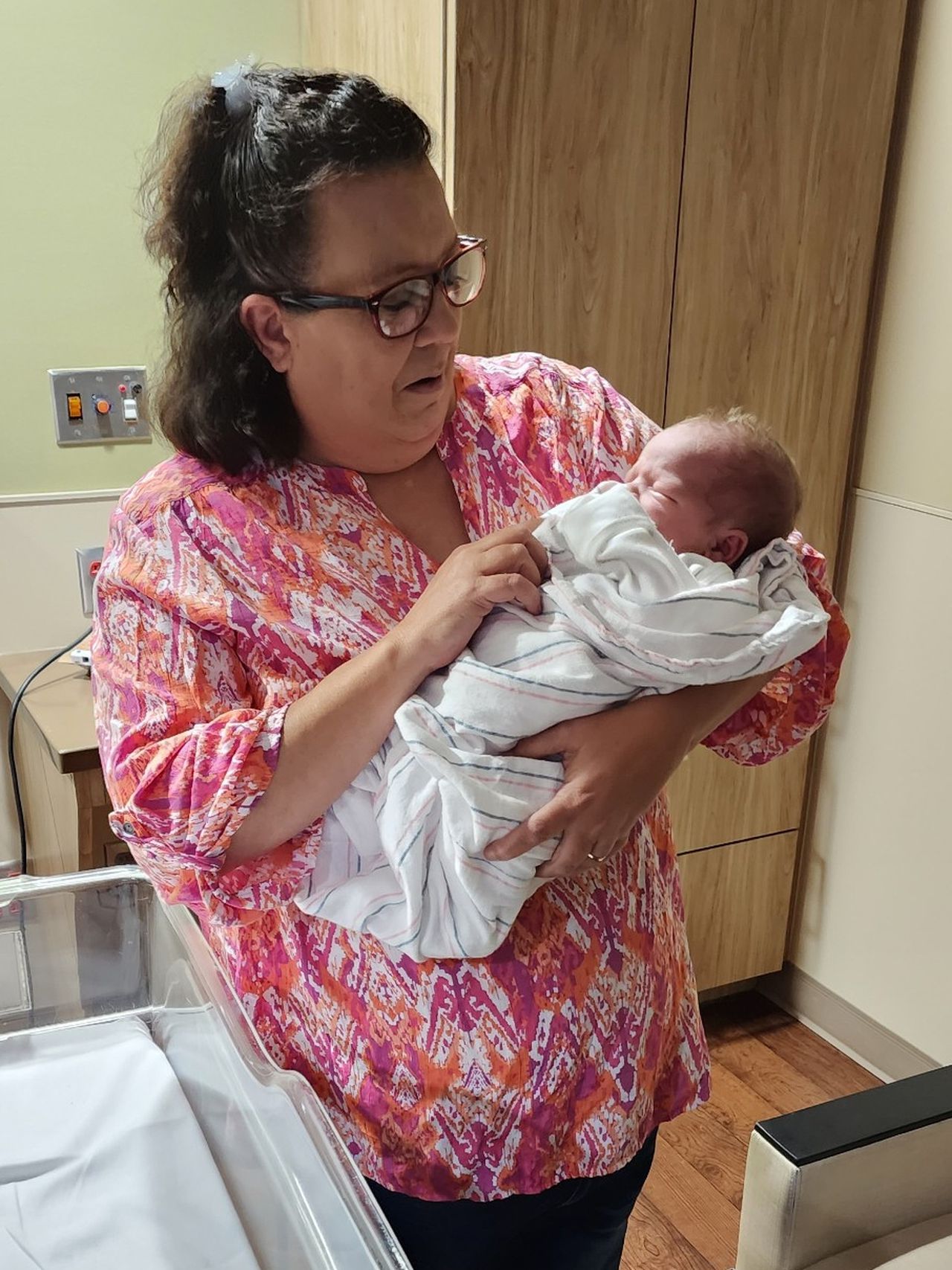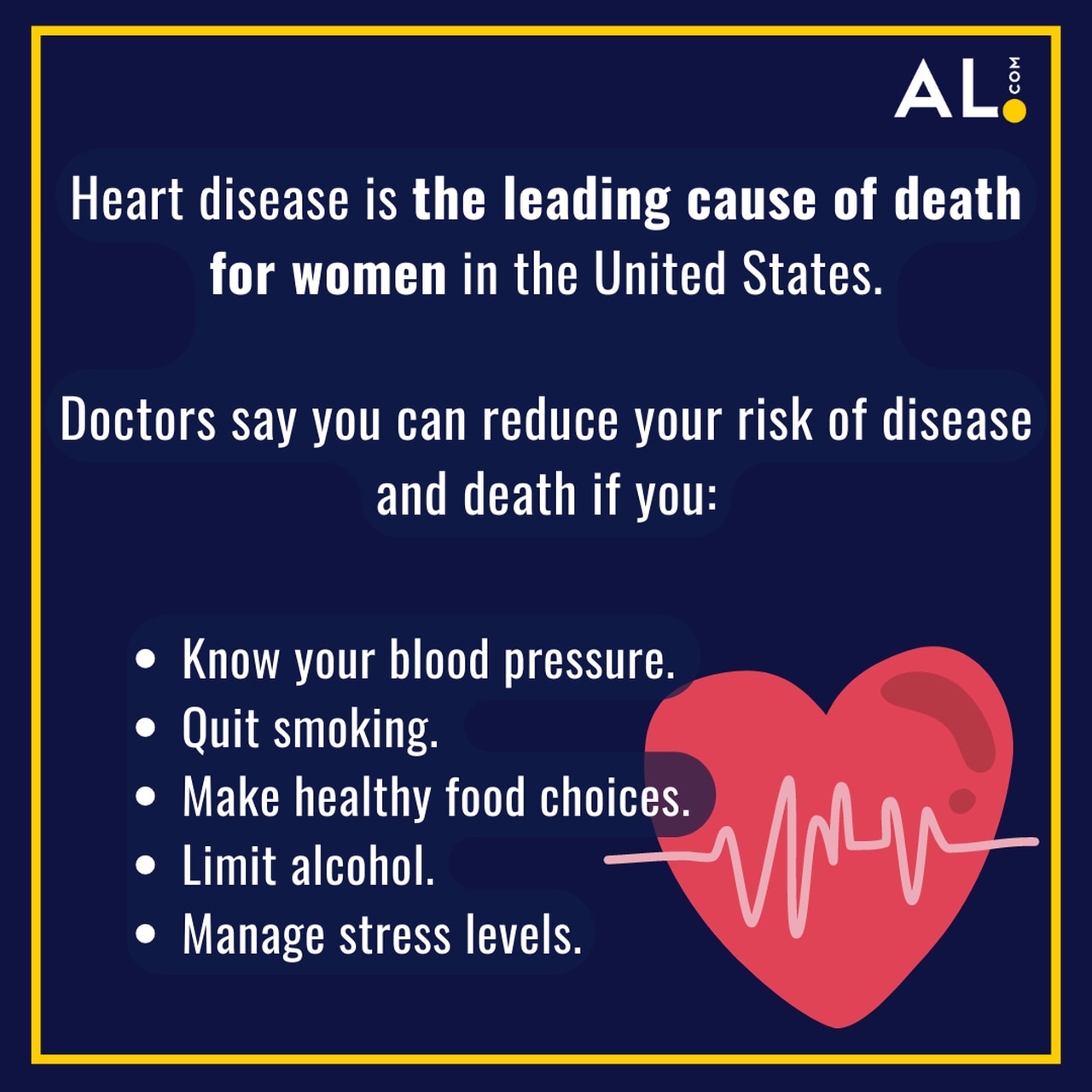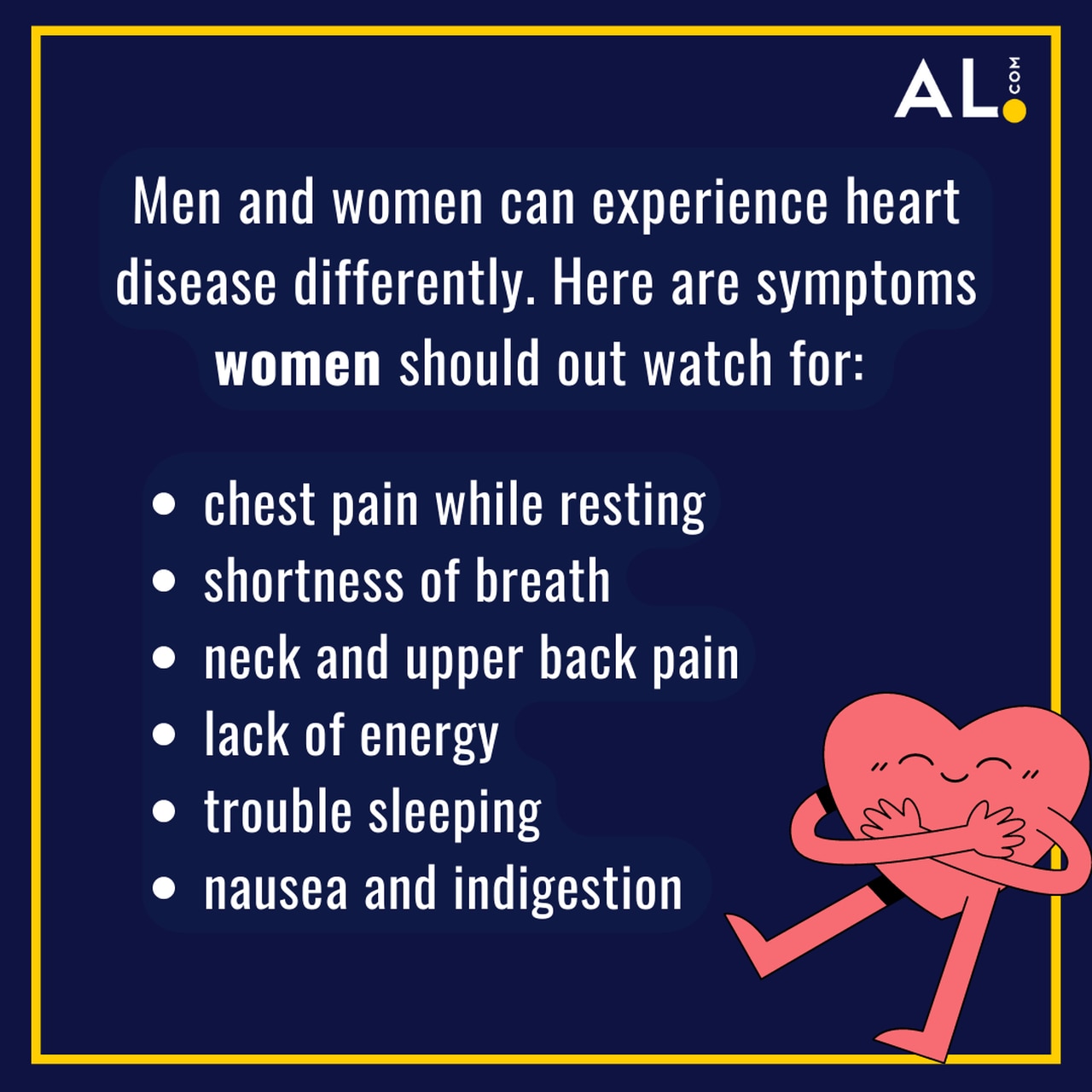Alabama doctors, heart disease survivors say checkups, awareness of symptoms are key
Sherron Simmons was on her way back from the gym when she had her first heart attack. It was three years after her doctors realized her left artery was almost entirely blocked. Doctors put a stent in her heart in 2007 and Simmons went back to her active lifestyle.
But when she pulled into her driveway that day in 2010, she couldn’t get out of the car. Her husband was standing in the driveway and she told him she’d be all right if she could lie down.
Instead, he told her they were going to the hospital. He had first-aid training and recognized the symptoms of a heart attack.
Simmons had her first heart attack on the way to the hospital and her second a week later. She had a bypass surgery and had to stay in the hospital for a month, dropping to 87 pounds. She eventually was diagnosed with heart failure. After eight months on a transplant list, she underwent a heart transplant at the University of Alabama Birmingham Hospital. Now, Simmons spends her time advocating for more awareness surrounding heart disease and women in Alabama. “As women, you know, we think we are super people, and so if I was asked, ‘How was I doing?’ I was like, ‘Oh, I’m doing better, I’m doing great!’” Simmons said. “But I wasn’t.”
Infographic. Ruth Serven Smith/AL.com
Heart disease can be fatal for Alabama women
Heart disease is the leading cause of death for women in the United States.
Women in Alabama died of heart disease at the second-highest rate in the United States from 2018-2020, following the rate of death among women in Mississippi. An average of 469.7 women per 100,000 died in the state during that time, according to the Centers for Disease Control and Prevention.Both Black women and white women in Alabama die of heart disease at higher rates than the national average, but Black women’s death rates are strikingly higher – 548 out of every 100,000 women die, compared to 455 out of every 100,000 white women, according to federal data.
Asian and Pacific Islander women also saw higher heart disease death rates in Alabama than at the national level.
Dr. Effie Andrikopoulou, a cardiologist from UAB, said women are more likely to develop coronary microvascular disease — cholesterol plaques and blockages in the tiny, tiny vessels of the heart. Diagnosing the disease requires sophisticated tests that Andrikopoulou said are harder to access in Alabama.
Hormonal issues and problems from pregnancies also can increase the risk of heart disease in women.
Heart disease symptoms often present differently between men and women. Women are more likely to experience chest pain while resting, while for men, it may be brought on by physical activity. Women may also experience tightness in the chest, as well as shortness of breath, nausea, vomiting and abdominal pain, a lack of energy and trouble sleeping.
Andrikopoulou said that historically, medical experts were more aware of heart disease symptoms in men, and have often attributed women’s symptoms to other issues.
Because women’s symptoms were often diagnosed and addressed later, by the time heart problems were evident, they were further along in their disease, Andrikopoulou said.
“It was a gap in appreciating and acknowledging and detecting disease early on, which is key to managing it appropriately, and to survival,” she said. “Women would go undiagnosed, which means that their disease would be much more advanced, when it ended up getting diagnosed, when it was getting appreciated. So that made their outcomes worse, because we were getting to them later on in the disease course, as opposed to men.”
“If you walk out of this hospital right now, you will die in the parking lot.”
By the time Simmons, who is 66 and lives in Shelby County, was diagnosed with heart disease, one of her arteries was already 90% blocked.
Similarly, when Amanda Partan, a 52-year-old from Cullman, went to the hospital after four days of chest discomfort, she discovered 98% of one artery was blocked, along with 95% and 75% of two others, respectively.
Partan, who has multiple sclerosis, first started having “dizzy spells” and feeling pain in her left arm when she was 47. Her doctors attributed it to degenerative discs in her neck. On a Thursday night two years later, Partan began to feel dizzy. She went outside for some air, and the discomfort went away until she got in bed, when she said it felt like someone had poured a bucket of water on her chest. There was no pain in her chest, but she said it felt like her heart flipped. Over the next few days, she would go back outside when she felt discomfort and it would alleviate.
That Sunday, while cooking dinner for her family, Partan forgot an ingredient. She went to a Dollar General near her home, but became so dizzy that she had to wait several minutes before driving home. She finished cooking before heading to the ER.
When she got there, she was told she was having an active heart attack and that she would be kept at the hospital. Instead of relief, Partan’s thoughts pivoted to her three nephews, whom she and her husband helped care for.
“I was thinking: ‘Who’s going to take care of them if I’m in the hospital? How are they going to get up and go to school? Who’s going to feed them? Who’s going to make sure that they do their homework and who’s going to make sure that they fix their food?”
Partan said she argued that she wouldn’t stay — she had to get back home to her family, she said.
She said her doctor said, “Ma’am, if you walk out of this hospital right now, you will die in the parking lot.”

Amanda Partan holds her new grandchild in Nov. 2022. Courtesy of Amanda Partan.
Partan had open-heart surgery and was put in a medically-induced coma. When she woke up, her first thought was wondering if her nephews were okay.
“In Alabama, people are raised — I was raised: Your family comes first,” Partan said. “You just set your needs aside to take care of your children, and, you know, even though it’s not actually spoken, put your health last. When you’re told to put your family first, your health automatically comes last.”
Simmons said she would never have gone to the doctor if her husband hadn’t insisted. She was more focused on a big project at work.
“I thought the work that I was doing was more important than me taking care of myself, not realizing, you know, there’s a possibility I wouldn’t have myself here,” Simmons said. My mind didn’t allow me to go there.”
Simmons and Partan said they were uneducated about symptoms.
Neither thought heart attacks were something that could happen to them.
A need for change
Both Simmons and Partan said they wished they had been more aware of their risk factors and knew what symptoms to look out for.
“Stupidity could have killed me,” Partan repeated several times.
Movements like Go Red For Women bring awareness to heart disease symptoms in women.
Heart health advocates also have called for changes in policy.
Both the American Heart Association and WomenHeart, organizations advocating for heart health, are involved with policymakers at the federal level. AHA also works with policymakers on a state level.
In 2023, AHA’s policy priorities for Alabama target tobacco and vaping, access to care and Medicaid expansion.
The CDC has several policy guides available for state lawmakers. One guide, which promotes comprehensive public access defibrillation programs, showed Alabama had few policy interventions compared to other states according to most recent available CDC data.
Some states also have instituted policies aimed at reducing sodium consumption. The CDC estimates that about 90% of Americans aged 2 and older consume too much sodium.
Simmons, whose career was in insurance, said she wishes heart health tests were more regularly offered as routine preventive care. HealthCare.gov does not list heart care or cardiology as a preventive care benefit for women.
“Only when you’re having symptoms, then you go see a cardiologist. Why not add some of those tests as a covered preventive service?” she asked.
She added she’d like to see lawmakers encourage women to educate themselves on heart disease and allow women to share their stories in front of the legislature.

Infographic. Ruth Serven Smith/AL.com
How can women stay healthy?
The National Heart, Lung and Blood Institute says it’s important for women to know their risks, learn the symptoms and ask for diagnostic tests. The institute also recommended asking for treatment that is effective for both men and women as women may be less likely to receive certain types of care than men.
“Doctors may be less likely to refer women for diagnostic tests for coronary heart disease. When women go to the hospital for heart symptoms, they may be more likely than men to experience delays receiving an initial EKG, are less likely to receive care from a heart specialist during hospitalization, and are less likely to receive certain types of treatments and medicines,” the NHLBI site reads. “Younger women are more likely than men to be misdiagnosed and sent home from the emergency department after cardiac events that occur from undiagnosed and untreated vascular heart disease.”
Experts add that heart issues don’t exclude young people. According to a recent study from UAB, one in four adults do not have ideal cardiovascular health.
Access to healthy, nutritious food and the ability to exercise are also important to heart health, Andrikopoulou said.
“I want to emphasize that no amount of pills, or tests or procedures or surgeries, no amount of any medical intervention can really substitute for a healthy lifestyle,” Andrikopoulou said.
She added that cooking styles in the South, like frequent frying or barbecued red meat, should be enjoyed in moderation rather than consistently.
For a heart-healthy lifestyle, Andrikopoulou recommended:
- Staying high in fiber, and low in added sugars and artificial sweeteners.
- Eating foods that are rich in nutrients like vegetables, fruits, lean meats, chicken or turkey breast, fat-free dairy products and grains.
- 30 minutes of moderate intensity cardio five days a week.
- Abstaining from smoking.
More information on living a heart-healthy lifestyle can be found here.
Andrikopoulou reminded women to always follow their doctor’s instructions.
“If their doctors are telling them to get their blood work checked or maybe get an EKG or any other tests, try to show some self care by getting those done,” she said.
All three women said they want women to take their symptoms seriously.
“Don’t let it be you,” Partan said. “Let yourself do what you’ve got to do. Put you before everything, because you without getting yourself checked and healthy is not going to do your family any good.”
